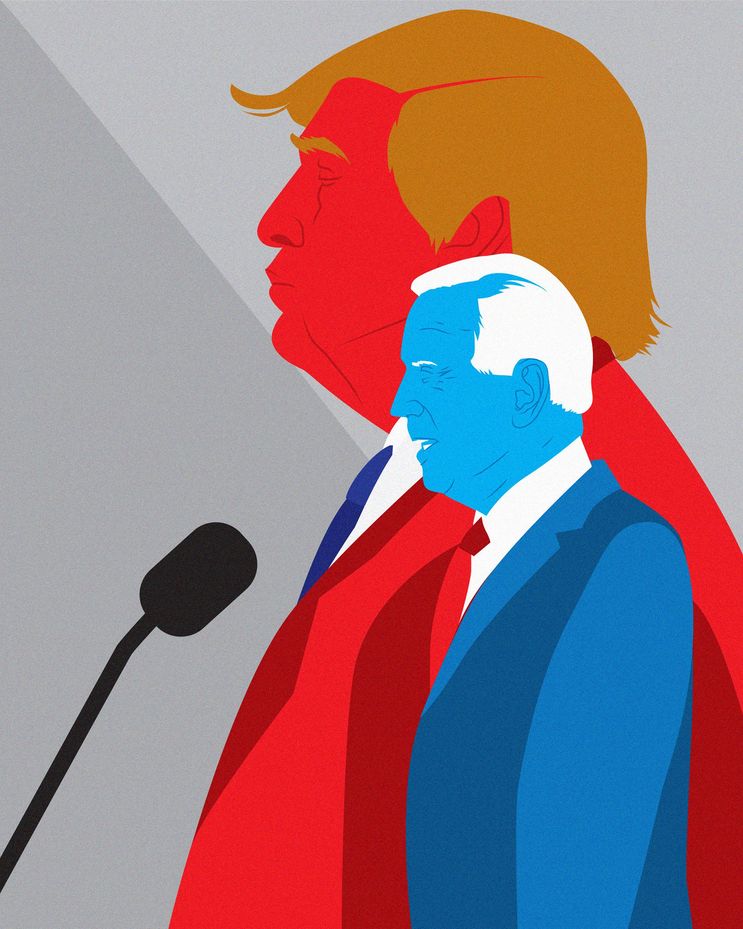[ad_1]

OPINION:
Listening to President Joe Biden speak at the U.N. General Assembly (UNGA) this past week drove me to recall the great Charles Dickens novel “A Tale of Two Cities.” The novel’s opening lines, “It was the best of times, it was the worst of times,” could easily be applied to the two second-year speeches of President Donald J. Trump and Mr. Biden on the world stage.
A president’s second speech at UNGA offers both a vision and a record. As such, the second speech should be judged not only by what a president says but also by what he has done over his two years in the White House. For Mr. Biden, his actions speak as loudly as his words, much as Mr. Trump’s did in his time, but the messages could not be more distinct.
Mr. Trump’s UNGA remarks centered on representing the interests of the American people on the world stage and reaffirming that the United States is a sovereign nation — a nation that partners with allies to advance American interests first. There’s an understanding that America First is not isolationism but is predicated on the position that our citizens are always primary in thoughts, words and actions. For Mr. Biden, however, the emphasis at UNGA instead focused on a national security debacle involving Russia that arose on his watch, as well as on how the United States was more interested in global interests than in putting the United States first.
Between his first and second addresses at UNGA, Mr. Trump withdrew from the disastrous Iran nuclear deal, recognized Jerusalem as the capital of Israel, cut assistance to the Palestinian government, forcing them to acknowledge accountability for peace leadership, launched Section 301 tariffs to restore U.S. trade balances with other nations, passed the Tax Cuts and Jobs Act of 2017 — the largest tax reform legislation since 1986 — and began reducing the terrorist ISIS caliphate in the Middle East.
These policies were part of a clear America First agenda, to advance the needs of the American people, both at home and overseas.
By contrast, between his first and second UNGA address, Mr. Biden failed to deter Russia’s Vladimir Putin from invading Ukraine, allowed China to constantly threaten and taunt Taiwan by flying military aircraft into their air defense identification zone, appeased Iran in seeking to get it into a new nuclear detail, contributed to the largest inflation for the United States in 40 years, eroded America’s role as an energy superpower, and boasted record-breaking numbers of illegal border crossings per month.
These policies are the perfect definition of America Last.
There is also a stark difference in how both presidents viewed the United Nations and America’s relationship with it. For Mr. Trump, it was the forum where he, like other world leaders, advanced the interests of their people, and their nation, in a global setting. Mr. Trump preached national sovereignty as a fundamental right of all countries. For Mr. Biden, the United Nations represents a platform to advance globalist interests rather than the interests of the American people. To Mr. Biden and his team, it is a global community first, while to the Trump team it was an American community first.
Mr. Biden’s second address did not address the drug crisis on our southern border or the mass influx of illegal aliens. Still, after talking about Russia, he did address global health policy and climate change as the leading problems facing our world. His emphasis on “climate diplomacy” is a direct example of an issue that weakens America’s focus on true threats our nation is facing — namely, a weakened military, historic inflation, the surge of illegal border crossings, government institutions seemingly being weaponized against the American people, an expansionist Russia and China, and the very real potential of nuclear proliferation in the Middle East by Iran.
A president’s words do have an impact — at times deliberate, at times unforced. But at all times, the president’s words are observed and reacted to by friends and foes alike. UNGA provides an international setting, unlike domestic speeches.
Presidents always have options. The options they decide upon affect all of us. Ultimately, “We the People” make the determination through the voting booth on what we believe the correct option to be. Words matter. Mr. Trump’s words and actions provoked and prevented but also made allies and adversaries fully aware of where we stood as a nation and a people. Mr. Biden’s words and actions create questions about American resolve and competence. I prefer the former over the latter.
• Keith Kellogg is a retired Army lieutenant general who is currently the co-chair of the Center for American Security at the America First Policy Institute. He is a Fox News contributor. Kellogg served as national security adviser to both President Trump and Vice President Mike Pence. He is the author of “War by Other Means: A General in the Trump White House” (Regnery, 2021).
[ad_2]
Source link
(This article is generated through the syndicated feeds, Financetin doesn’t own any part of this article)
